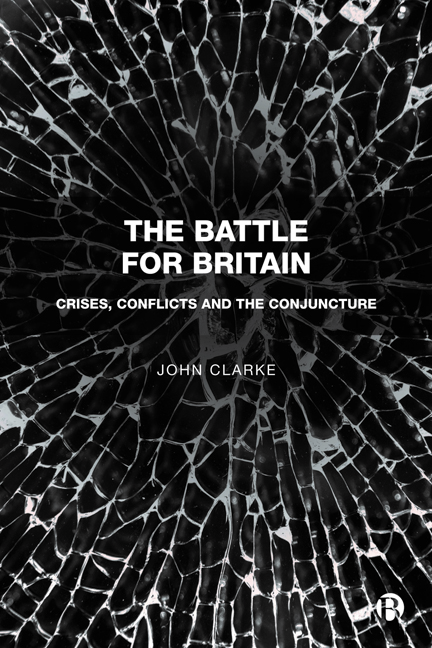4 - Thinking Relationally: Class and Its Others
Published online by Cambridge University Press: 18 January 2024
Summary
Class became central to debates about Brexit (and the wider conjuncture) in several ways. As we saw in the last chapter, one argument was that Brexit was a ‘working-class revolt’. This chapter explores some of the problems associated with this claim before arguing for a more relational understanding of social divisions. The argument ignores evidence about the substantial contributions of the middle classes to the Brexit result. At the same time, there are conceptual questions about the remaking of the working class in deindustrialised times and the contemporaneous remaking of the middle classes. There is a particular issue about the increasing visibility of ideas of the ‘white working class’ and the chapter explores the conditions for this imagery in the long trajectory from colonialism to post-colonialism. This points to questions of how to understand the articulations of class and other social relations such as racialised and gendered divisions in the current conjuncture – and their shifting social and political salience (Williams, 2021). In hard times, there is a recurring tendency for critical thinking to revert to a focus on class, as if the arguments about how class is articulated with other social relations had never taken place. As a result, the final part of the chapter directs attention back to the multiplicity of social relations in the current social formation.
Rediscovering the working class
In the aftermath of Brexit, the working class was ‘rediscovered’ as both a social group and a political force. Researchers who had been studying workingclass communities argued that people who had been ignored and disdained by Westminster (and politics more generally) had seized the unexpected opportunity provided by the referendum to make themselves heard:
The sustained attack on working-class people, their identities, their work and their culture by Westminster politics and the media bubble around it has had unforeseen consequences. Working-class people have stopped listening to politicians and Westminster and instead they are doing what every politician fears: they are using their own experiences in judging what is working for and against them. (McKenzie, 2016)
- Type
- Chapter
- Information
- The Battle for BritainCrises, Conflicts and the Conjuncture, pp. 72 - 88Publisher: Bristol University PressPrint publication year: 2023

